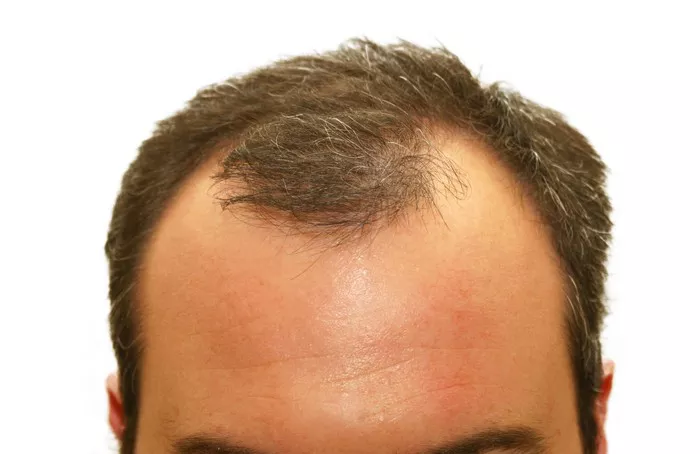In today’s fast-paced world, where stress and sleepless nights are all too common, it’s no wonder that we’re often searching for the root causes of hair loss. Could the quality and quantity of our sleep be a hidden culprit? In this comprehensive article, we’ll delve into the intricate relationship between sleep and hair loss. We’ll explore the science behind this connection and provide you with practical insights to help maintain a luscious head of hair. Let’s begin by examining the fundamental question: Does sleep affect hair loss?
1. The Science Behind the Sleep-Hair Loss Connection
Research has shown that a lack of sleep can have a profound impact on our overall health, and it extends to our hair as well. Several factors contribute to this intricate relationship, which can be categorized into the following:
a. Hormonal Imbalance
One of the primary ways sleep affects hair loss is through hormonal balance. During deep sleep, our bodies release growth hormones, which play a pivotal role in hair growth and repair. Inadequate sleep can disrupt this delicate hormonal balance, potentially leading to hair thinning and loss.
b. Stress and Cortisol
Sleep deprivation often goes hand in hand with increased stress levels, triggering the release of the stress hormone cortisol. Elevated cortisol levels can wreak havoc on hair follicles, leading to hair loss. Chronic sleep issues can exacerbate this problem.
c. Reduced Blood Circulation
Quality sleep promotes better blood circulation throughout the body, including the scalp. Adequate blood flow ensures that hair follicles receive the essential nutrients and oxygen they need for optimal growth. Poor sleep can hinder this process, impeding hair follicle health.
2. The Role of Sleep Patterns in Hair Health
Now that we’ve explored the science, it’s crucial to understand how your sleep patterns can directly impact your hair health. Consider these key points:
a. Consistency Matters
Maintaining a consistent sleep schedule is essential for your hair’s well-being. Irregular sleep patterns disrupt the body’s natural rhythms and can contribute to hair loss.
b. Aim for Quality Sleep
While the recommended amount of sleep varies from person to person, it’s generally advised to aim for 7-9 hours of quality sleep each night. Deep, uninterrupted sleep promotes healthier hair growth.
c. Avoid Sleep Deprivation
Chronic sleep deprivation can exacerbate hair loss, so prioritize sleep as an integral part of your hair care routine.
3. Practical Tips for Healthy Hair and Better Sleep
Now that we understand the connection between sleep and hair loss, let’s explore some practical tips to promote both healthy hair and better sleep:
a. Create a Relaxing Bedtime Routine
Establish a calming bedtime routine that includes activities such as reading, meditation, or a warm bath to help you relax before sleep.
b. Invest in a Comfortable Mattress and Pillow
The quality of your sleep is heavily influenced by your mattress and pillow. Ensure they provide proper support and comfort to enhance your sleep quality.
c. Manage Stress and Anxiety
Stress can disrupt your sleep patterns and contribute to hair loss. Consider stress management techniques, such as yoga, mindfulness, or deep breathing exercises.
d. Follow a Balanced Diet
A nutrient-rich diet, including vitamins and minerals essential for hair growth, can significantly impact your hair’s health.
e. Stay Hydrated
Proper hydration is essential for overall well-being, including hair health. Dehydration can lead to brittle and damaged hair.
4. Professional Hair Care for Maximum Impact
Professional hair care practices play a pivotal role in minimizing hair loss and maximizing hair growth. To this end, consider the following steps:
a. Use Gentle Shampoos and Conditioners
Select hair care products that are gentle on your hair and scalp. Harsh chemicals can weaken hair and contribute to hair loss.
b. Regular Scalp Massages
Massaging your scalp regularly can stimulate blood circulation, aiding in nutrient delivery to hair follicles.
c. Avoid Excessive Heat Styling
Excessive heat styling can damage your hair, leading to breakage and hair loss. Use heat styling tools sparingly.
5. Seeking Medical Advice
If you’re experiencing persistent or severe hair loss, it’s crucial to seek professional medical advice. A dermatologist or hair specialist can help diagnose the underlying causes and recommend appropriate treatments.
See Also: Can Yoga Combat Hair Loss: Things You Need To Know
In conclusion
The relationship between sleep and hair loss is a complex one, and it’s crucial to understand its nuances. By prioritizing healthy sleep patterns, stress management, and proper hair care, you can take significant steps toward maintaining a vibrant and thick head of hair. Remember that consistency and a holistic approach are key to unlocking the secret to healthy hair, so make the necessary changes today and reap the benefits of better sleep and more luscious locks in the long run.


